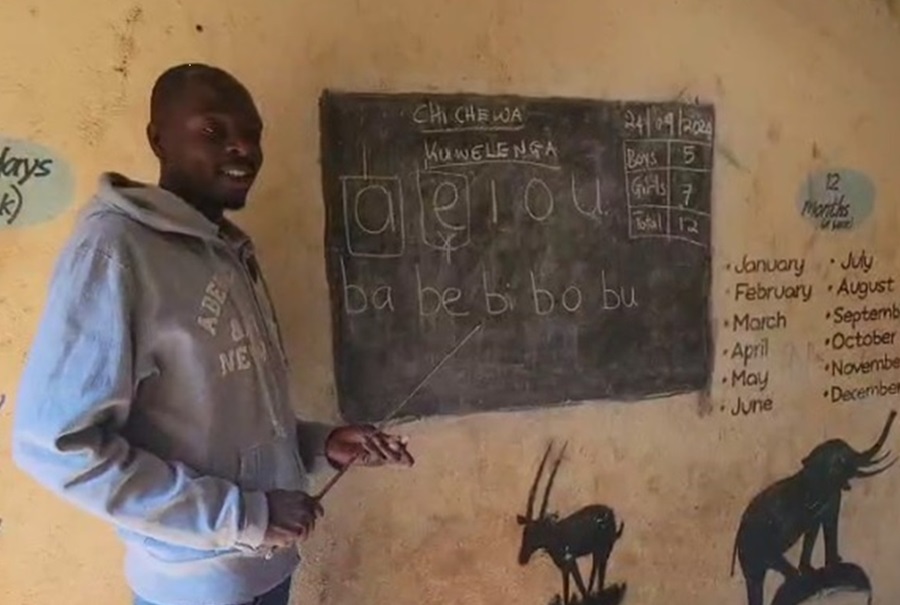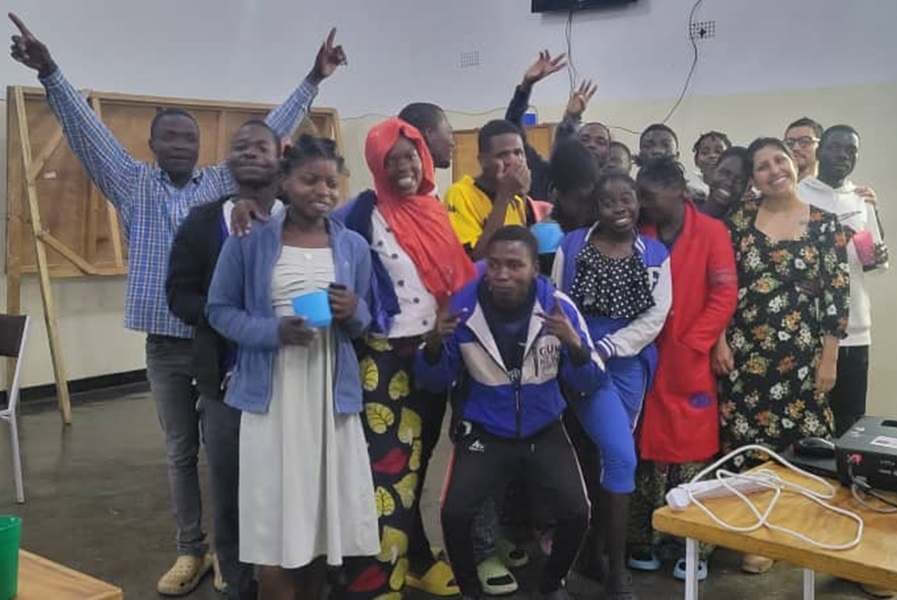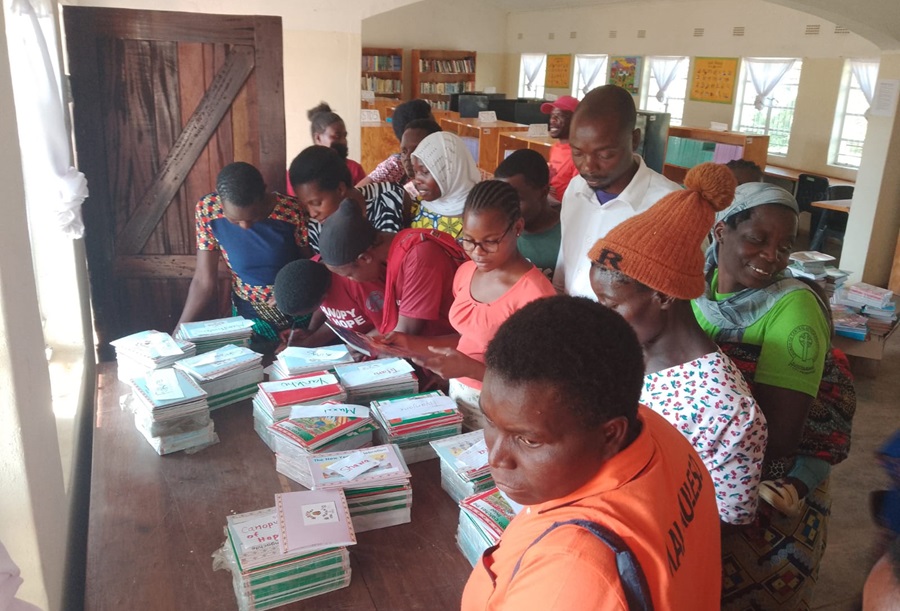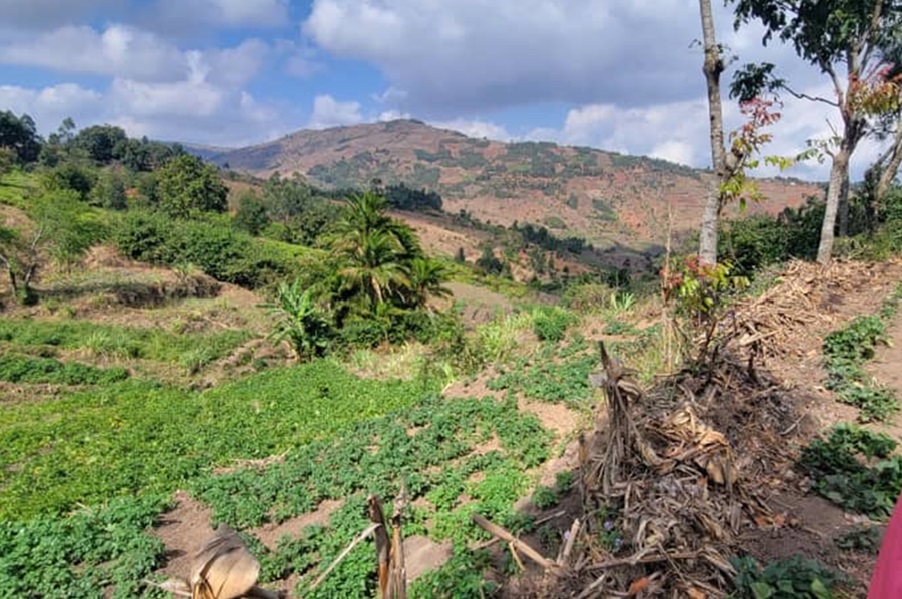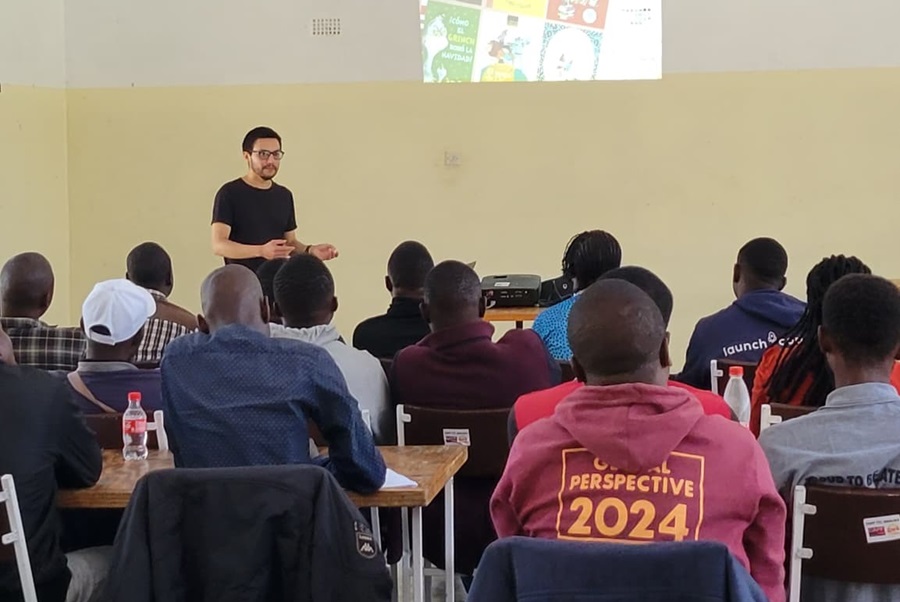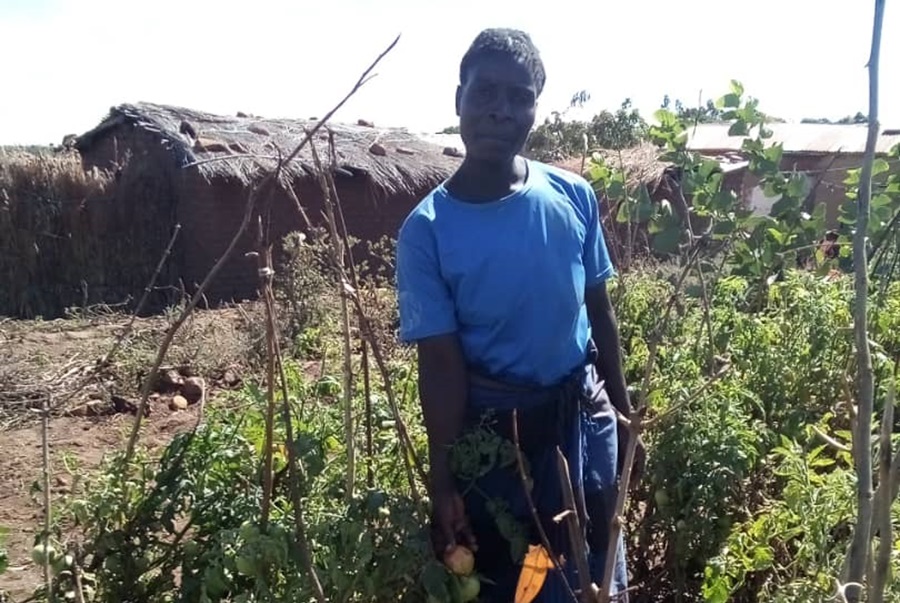Volunteering with preschools in Amalika, Malawi
By Jose Becerra, Colombia, Development Volunteer team April 2024
Here you can enjoy parts of the monthly report from Jose about his work with DAPP Malawi.
Supporting preschool teachers in Amalika with DAPP Malawi
We have been visiting the seventeen preschools to talk with the teachers and get a deep understanding of their needs and ideas about education of the children around. It has been an advantage to have the children on holidays, because then we can talk quietly in long conversations. As almost all of them are not well English speakers, we took the decision of making some interviews with specific questions. They answer in Chichewa and later Richard helps us with the translations. So, we kill two hunters in one shoot: we are creating a product for sharing with the public, and we are listening directly to the teachers. It is good because sometimes in daily contact the translation is very short compared to the speech of the teachers.
Food production for the children
Also, of course, we have visited the Pang’ono gardens. Almost all the processes are successful because we are seeing how the maize, beans, eggplant and Chinese mustard are growing healthy. In some cases, is very nice to see that our support is not required, in other ones, they gently ask for help to work together: “I will not plant with you but with the children parents” (said one teacher) + “the vegetable seeds were eaten by the hens, please come and build with us a fence”. Moreover, we are going to supervise carefully how is working the connection between gardens and kids’ nutrition. From the last crop, many of the preschools were giving food twice per week to the children.
Getting support from local companies
We have started the process of looking for sponsorship in local companies. The first trips have been to train our ability to persuade the owners, and to prepare the materials to present them. We think this strategy will be exhaustive but successful, then we are going to give a lot of time and energy to find support to help communities with the most expensive materials to build: cement, iron sheets, doors and windows. We want to give a hand to the ones have shown more commitment with their own plan: those who already got together sand, stones, wood, and bricks.
Also, we returned to Makandi Tea Estate Company to ask for the decision about the support with building materials (cement bags) to build the bridge over the river in Amalika. We had a good meeting first, then we waited for the deadline of the answer. As it did not arrive, we went again but the Human Resources Chief was out. It seems they are not going to give the support. But we will continue going and trying. If the answer is negative or confusing again we are going to ask for this help in some banks or companies in Blantyre and Thyolo.
Canopy of Hope – an example of progress
We gave support to the teacher Doricca, from Canopy of Hope. This preschool is different from the other ones, especially because of the director who has a lot of knowledge and experience on child development. She is a graduated teacher from Amalika TTC (Teachers Training College run by DAPP Malawi). She works as primary school teacher paid by the government. As she loves to give support to children without parents or with nutrition issues, she created the school to help them to access education for free. She is really inspiring. She needed help during an event, we went to give support; she needs help to improve the quality of a documentary she is preparing, we are helping too. Her school has a paid team of teachers, who create materials. The space is good, the children receive food every day, they ask for local sponsorship, and they pay the uniforms for the students. We think we have a lot to learn from her. Her preschool is on another level; I dream one day the other ones can arrive to it.
Some facts about the preschool situation
Here I can share some impressions from the visits and interviews with the Preschool teachers:
a. In average, the classrooms of preschool (where they are built) are 12 m2. Almost all of them have more than 50 students, and between two or three teachers.
b. The biggest challenges of these preschools are: nutrition for the children and the work of the teachers as they are volunteers, not official teachers paid by the government. The lack of nutrition makes some children stop going to study, or they fall asleep in the classroom or stay without enough energy to pay attention. The fact that the preschool teachers have no regular payment sometimes produces desperation in the teachers who dedicate a lot of hours and work per week - to receive just a bit of money from some parents.
c. The most common dream of the teachers is to improve the infrastructure and access to educative resources, to enhance the quality of the education they offer. Some teachers say that if they would have a bigger and better classroom they would be able to receive more children. This shows their openness to continue growing their local impact, also reaching the many children who do not have access to school nor preschool. These children are off our "radar".
d. The history of the creation of the preschools comes from a collective effort and personal or familiar initiative from the teachers.
How to avoid becoming non-doers
As DI-s (Development Instructors) we have to be aware, and avoid to become non-doers, because it seems there are a lot of challenges. If we say “there are many problems”, “we are here just 6 months and we are just 2 DIs”, “we can do something good for some people, but even so it is just a small drop in a giant set of people and situations” - then we will not act.
And I think it is what the system wants: storming troubles to delete hope, action, reaction, thinking, criticism, imagination and collective empowerment.
So we are encouraging each other to DO, even if it contributes just to a few communities, a few people and for a short time. Because, maybe these actions will embolden others to move, and they will reduce pain and perplexity for a bit.
Working shoulder to shoulder, overcoming the differences
We had a very inspiring meeting with the community of a preschool that needs the building of a classroom. They want to work with us to find the remaining materials, so we decided to start asking for sponsorship in some companies in Limbe and Blantyre. The first trials were good. We received some small materials (in Kg they are enough to tie the roof and to install the doors), some thousands of kwachas, and two very amazing promises about materials.
We want to continue making visits to Limbe and Blantyre with Richard. It is sad to see that the biggest companies belong to Arabian and Indian people. Even so, we continue thanking for the support and trying to give a positive example on avoiding and criticizing racism. This month we saw some symptoms of systematic racism and we shared our point of view and neglected attitudes and actions that positioned us as superior by the absurd fact of our skin color. It happened out of Amalika in daily circumstances like shopping.
I think we did a good job this month. In the first month, we had one week and a half with some interruptions: visa process, funerals, a hospital visit, and so on. But, we have recovered the rhythm we had at the beginning, so we are visiting four preschools, in average, daily. Some days, we have meetings or events in a specific preschool, so we focus on one, but in general terms, I think we are doing a good job. Even so, we need to improve in some areas like communication. We talk well as a duo, it is very important. But we don’t always understand Richard (preschool supervisor) properly. Sometimes it’s ok but later the misunderstandings come. Also, our project leader, the principal, our teacher, and Ana (former DI here) can help us with some advice or explanations.
Collecting interviews, experiences and oral literature
This month we made a workshop about oral literature with some of the 400 primary school teachers who monthly meet here in Amalika. It was successful, they shared with us around thirty oral literary works: proverbs and riddles.
We made seventeen short interviews with the preschool teachers we daily visit. We decided to do it because they have a clear and interesting perspective about education, collective effort and communities.
Getting rid of the stereotypes
The teachers are volunteers, they work for love and local commitment. We think their knowledge is very valuable, so we are considering to prepare a short video with the best fragments of the interviews. This will be to show them, and to share with them, but also to present in England as an example against stupid stereotypes like these ones:
“They are poor because they want to be ” , “…because they are lazy” or “…because they are not smart”.
The questions of the interviews are related to the history of the creation of the preschools, the challenges of being a teacher in these rural areas, the importance of preschool education, their dreamed future for the schools, the quantity of children, messages to other teachers and children, and traditional tales.
Things are going well, ideas are becoming facts, and the weather is more and more hot...
Thank you for reading. Maybe I will come with updated news later.





